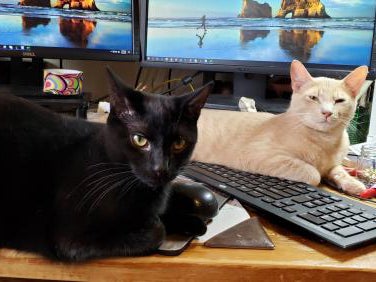Domestic cats kill two to 10 times more wildlife than wild predators, study claims
‘Pets kill fewer prey per day but their small home ranges mean the effect on local prey gets really concentrated,’ says lead author
Your support helps us to tell the story
From reproductive rights to climate change to Big Tech, The Independent is on the ground when the story is developing. Whether it's investigating the financials of Elon Musk's pro-Trump PAC or producing our latest documentary, 'The A Word', which shines a light on the American women fighting for reproductive rights, we know how important it is to parse out the facts from the messaging.
At such a critical moment in US history, we need reporters on the ground. Your donation allows us to keep sending journalists to speak to both sides of the story.
The Independent is trusted by Americans across the entire political spectrum. And unlike many other quality news outlets, we choose not to lock Americans out of our reporting and analysis with paywalls. We believe quality journalism should be available to everyone, paid for by those who can afford it.
Your support makes all the difference.Domestic cats kill more prey in a given area than similar-sized wild predators, research suggests.
According to a new study, hunting by pets can have a big impact on the local wildlife population.
Scientists say the effect is mostly concentrated around a cat’s home, as most of their movement is within a 100-metre radius.
This usually encompasses a few gardens on either side.
The study indicates that pet cats kill two to 10 times more wildlife than the equivalent wild predator.
Researchers from North Carolina State University and the North Carolina Museum of Natural Sciences worked with scientists from six countries to collect GPS cat-tracking data and prey-capture reports from 925 pet cats.
Most of the animals came from the US, UK, Australia and New Zealand.
Lead author Roland Kays said: “Since they are fed cat food, pets kill fewer prey per day than wild predators, but their home ranges were so small that this effect on local prey ends up getting really concentrated.
“Add to this the unnaturally high density of pet cats in some areas, and the risk to bird and small mammal populations gets even worse.
“We found that house cats have a two- to 10-times larger impact on wildlife than wild predators — a striking effect.”
Researchers asked pet owners to track their cats to see where they went and report on the number of prey they brought home.

GPS trackers measured the distances travelled by the house cats, which spent their days both indoors and outdoors.
Prof Kays said: “We knew cats were killing lots of animals — some estimates show that cats in North America kill from 10 to 30 billion wildlife animals per year — but we didn’t know the area in which that was happening, or how this compared with what we see in nature.”
In the study, published in the Animal Conservation journal, scientists calculated the amount of prey killed per year by house cats and divided the number by the area in which the cats hunted.
Some adjustments were made to the prey count as the animals do not necessarily take all their kills home.
According to the study, house cats killed an average of 14.2 to 38.9 prey per 100 acres, or hectare, per year.
The study also showed that cats do much of their damage to wildlife in disturbed habitats, like housing developments.
Study co-author Rob Dunn, William Neal Reynolds distinguished professor of applied ecology at NC State University, said: “Humans find joy in biodiversity, but we have, by letting cats go outdoors, unwittingly engineered a world in which such joys are even harder to experience.”
PA

Join our commenting forum
Join thought-provoking conversations, follow other Independent readers and see their replies
Comments